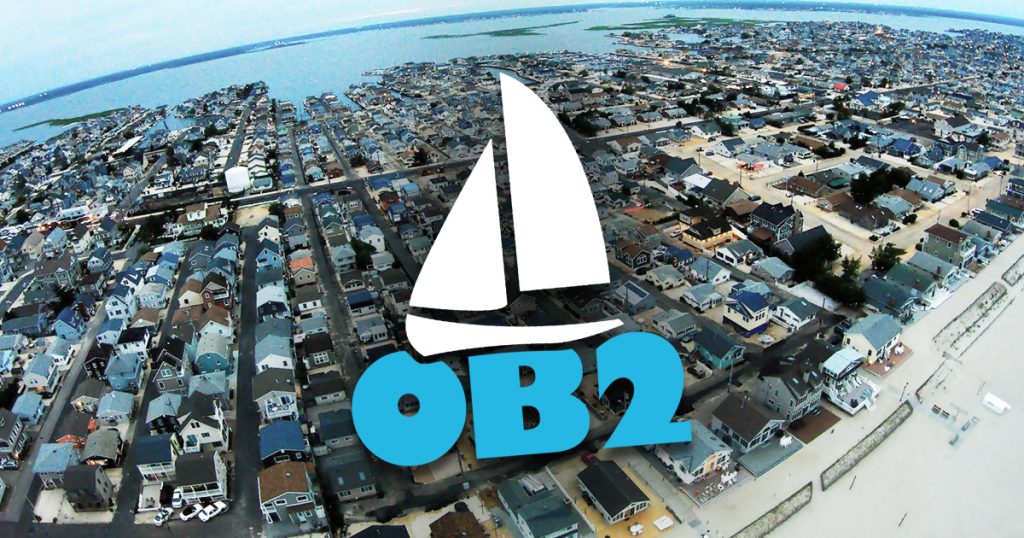We’re less than 24 hours away from being able to access our homes for the first time since Hurricane Sandy stormed through our community. While everybody is certainly anxious to get in and begin the cleanup & rebuilding phase, it’s important to remember several safety and preparation items.
10 Things To Bring With You
Once on the island, you’re not going to have access to any stores or even the ability to wander around. The following is a list of items you should absolutely have with you before you head over the bridge tomorrow:
- Contractor Sized Black Garbage Bags – Any major home improvement store (Lowes, Home Depot) should have them in stock and it is advised that you bring at least a box or two. Fill the bags with anything you deem garbage and leave them on the edge of your property. The Toms River DPW will be around to collect any garbage after you leave.
- Marine-strength Antifreeze – After you drain your pipes, it’s advised that you pour antifreeze down the drains to help avoid having your pipes freeze over the winter. This is especially important if you never typically winterize your home or you do not have a professional contractor coming to help you do it.
- Rubber Gloves – The rise in the tides also brought up a lot of muck, sewage, and other garbage. You’ll find that you might have a sludge around your house. It is STRONGLY advised that you do not touch this mucky film directly with your skin. There’s no real way to tell if it’s carrying bacteria or not. Try to invest in a sightly thicker pair of gloves for best results.
- Respirator Mask – The minute you open your door, you’re going to notice a strong odor from the sitting water and the mold. This odor should immediately set off a flag in your mind that this is NOT healthy to inhale. A respirator mask will help make it easier for you to breathe while protecting you at the same time.
- Case of Bottled Water – All the water in your home was shut off in the wake of the storm to avoid further flooding. Even if water is still coming out of your pipes, there’s no telling if it’s healthy. Bring a case of bottled water for your own safety. It’s important to stay hydrated throughout the whole cleanup process.
- A Pair Of Clothes You Don’t Mind Throwing Away – Whatever you decide to wear when you get back to your home to clean up … expect to throw them directly in the garbage. They’re going to be covered in filth and probably smell horrendous by the time you’re finished. Don’t bother trying to save them … just throw them right out.
- A Small Generator – Your home does not have any power. If you intend on testing out your appliances or trying to do any sort of work on your home, you will need to bring a generator to power your tools. However, try to keep in mind that the bigger the generator, the less space you’ll have in your car to take items home with you.
- A New Set of Tools – There’s a good chance that the tools you had at your home are either washed away or are simply covered in a mucky film. Either way, you shouldn’t waste your time trying to find them or clean them. Bring a new set of tools with you so that you can get right down to business. At the very least, everyone should bring a hammer and a set of screwdrivers.
- A Checklist – Before you even get in your car to head to your house, make a list of items you absolutely need to take out of the house. It’s also wise to make a list of tasks you want to complete before you leave. While it probably seems like you’ll remember everything, I can guarantee that when you walk into your home, you’ll spend 15 minutes standing in awe of the damage. Often times, this awe will result in a slight panic and you’ll end up wandering around the house, not knowing where to start. Use the list to keep you focused and serve as a double-check for you!
- A Digital Camera / Disposable Camera – The absolute first thing you should do when you walk into your home is to take pictures. Pretend it’s your prom or a wedding and take pictures of literally everything! You cannot take enough pictures tomorrow. The more pictures you take, the better chances you’ll capture all of the damage and can use it later to help file claims with FEMA and your insurance. Remember … TAKE A LOT OF PICTURES!
10 Safety Tips to Remember When You Enter the Island
- The Roads Are Still Not 100% Stable – Despite the fact that we are being allowed back on the island, some of the roads are still going to be in bad shape. Please do your absolute best to stay on course and do not venture off onto other roads that you do not need to be on. If you get in an accident, you’re going to merely impede traffic for EVERYONE else trying to get onto the island. And can you imagine what it will be like to get a tow truck to try and get around over 3,000 other cars to get to you?
- The Water Should Not Be Drank – Water filtration systems have been out of order and some pipes have broken in various areas. Because of this, you should NOT drink any of the water in your homes. Avoid letting it contact your skin, as well. Treat it as if you KNOW its contaminated.
- Do Not Touch the Slime With Your Hands – There could be endless amounts of bacteria in the slime and sludge that you’ll find in your homes. Do not touch it. The last thing you want to do is to get some on your hand and then accidentally wipe your face. Please protect your skin with gloves!
- Evaluate Your Home Before Entering – Although our homes did not get hit as hard as other areas, that does not mean your home is still structurally safe to enter. Try to evaluate your home from the outside before you enter and determine whether anything looks out of place. If you need advice, there will be police officers patrolling 35 north and south that are there for your assistance. Ask an officer or a neighbor for a second opinion.
- Do Not Consume Any Food (Wrapped or Unwrapped) From Your House – Play it safe and throw everything away. Even if the food looks properly sealed, you’re just better off throwing it away than risking getting sick.
- Do Not Breathe In Mold – If you notice an odor before you enter your home, then chances are you want to be wearing a mask before you enter. If you did not bring a mask with you, then place your nose and mouth under your shirt and try to open as many windows as possible as soon as you enter to try and air the home out. Give the house a good 15-20 minutes to air out before you re-enter. There could be bacteria in the air.
- If You Feel Light-headed, It’s Time To Stop Working – Don’t overwork yourself. If you begin to feel sick or lightheaded, it is strongly advised that you stop working. There will be emergency personnel on the island, however they’re going to have to deal with the same traffic congestion as everyone else. As important as your belongings may be, your health is still more important. Do not jeopardize it!
- Be Careful When Starting Cars That Were Left on the Island – Just because the car looks like it’s okay from the outside does not mean it IS okay. Virtually the entire island was under 3 feet of water. While that may not have submerged your car, it’s surely enough to affect all the mechanics underneath. Unless you are a trained professional or have a trained professional with you to evaluate the state of your car, you are better off leaving it alone. The car could break down immediately in the middle of the road and then you’ll have a whole new group of problems at your disposal.
- Discard Heavily Contaminated Items & Clothing – If anything in your home was completely submerged and remains in sitting water, then throw it away. Low-lying dresser drawers may have retained water and still be sitting. Your best bet is to completely discard this items as they are probably heavily contaminated at this point.
- Thoroughly Clean Yourself When You Leave – This is probably another “no-brainer” but is worth being repeated. Once you arrive home, you should go right into the shower and scrub your body with warm water. It’s probably worth using several cycles of shampoo in your hair, as well. Despite how careful you were while in your barrier island home, you never know what you may have brought with you in your hair or on your skin.
Additional Information
For more information on safety tips following a hurricane, check out both of this government-sponsored resources:
- http://www.nj.gov/health/er/hurricane.shtml
- http://emergency.cdc.gov/disasters/floods/cleanupwater.asp
Remember to Help a Neighbor
If you find your home didn’t take on much damage and you’re able to clean your home up in short time, try and help out a neighbor. There will be plenty of people in our community who could use an extra hand sorting through their belongings and winterizing their home. Rather than leaving early, see if you can lend a hand to them.
We’re all in this together. The quicker we can get everyone’s home back together, the quicker we can all move on from this disaster and be able to enjoy another wonderful summer at Ocean Beach & Yacht Club.
Best of luck to all those heading down tomorrow!

